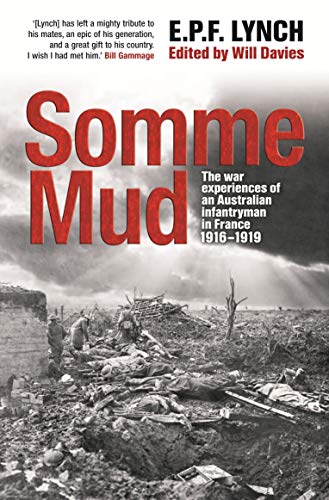
The War the Infantry Knew, 1914-1919
by J. C. Dunn
"A Chronicle of Service in France and Belgium with the Second Battalion, His Majesty's Twenty-Third Foot, the Royal Welch Fusiliers, Founded on Personal Records, Recollections and Reflections"
Popularity
3.72 / 5
* A book's popularity is determined by how it compares to all other books on this website.
Where to buy?
Buy from Amazon* If you buy this book through the link above, we may receive a small commission at no extra cost to you.
The War the Infantry Knew, 1914-1919 by J. C. Dunn
Details
War:
World War I
Perspective:
Infantry
Military Unit:
British Army
True Story:
Yes
Biography:
Yes
Region:
Europe
Page Count:
613
Published Date:
1988
ISBN13:
9780349106359
Description
Brief Summary
The War the Infantry Knew, 1914-1919 by J. C. Dunn is a seminal account of the First World War, chronicling the experiences of an infantry battalion on the Western Front. Originally published in a limited edition in 1938, this book has gained recognition over the years as a crucial narrative that offers unvarnished insight into the lives of soldiers during one of history's most devastating conflicts.
Main Themes and Topics
The book deeply explores the reality of war from the perspective of the infantry, primarily focusing on the themes of camaraderie, survival, and the stark realities of military engagement. It captures the daily routines and struggles of the soldiers, providing a detailed examination of the psychological and physical toll of warfare. Dunn's account also delves into leadership, duty, and the absurdity and occasional humor found even amidst the chaos of war.
Writing Style and Tone
J. C. Dunn employs a diary format that brings authenticity and immediacy to the narrative. This style provides readers with an intimate look at the day-to-day experiences of the soldiers. The tone is candid and reflective, often interspersed with dry wit and poignant moments that reveal the human side of the soldiers' experiences. Dunn's writing is both descriptive and analytical, creating a narrative that is not just a recounting of events, but also a contemplation of their significance.
Awards and Recognition
Although The War the Infantry Knew was initially published privately, its reputation has grown over the decades. Esteemed historians and publications have lauded it for its authenticity and depth. The book is frequently cited as an important historical document, with praise from figures like John Keegan and publications such as the Daily Telegraph and the Times Literary Supplement, who have recognized it as an outstanding and truthful account of the First World War.
Criticism
Criticism of the book is minimal, primarily because it is valued for its firsthand account and detailed portrayal of the infantry experience. However, some may find the diary format challenging, as it occasionally leads to a fragmented narrative. Despite this, the format is considered a strength by many, adding to the book's authenticity and immersive quality.









